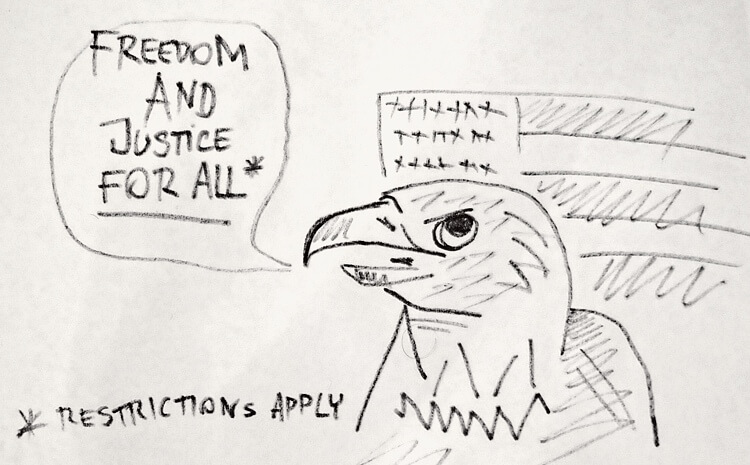
I moved to the States to experience the land of the free and the country of the legendary economy. Last week, I moved out to pursue values, freedom, and happiness elsewhere. Here is why:
In short, because the US forced me to. Have I broken or abused the law? Oh no. The American system sucks for people like me; that’s why. Of course, things aren’t just as simple, so to understand the problem, read the larger story:
After graduating from a European high school, I was deciding what to do. I had some work to show, but nothing that would put me ahead of the competition, and my part-time jobs weren’t going anywhere. I wanted to continue my education, but I felt like I needed to take a bigger step in life than just changing an institution to attend. Not having a strong attachment to the country or the city I lived in, I looked for a more significant change. I had traveled across Europe a bit already, and I wanted to see more. Sights but also mindsets, and values. And so, I decided to look further beyond the old continent.

Mountains in Slovakia, sometime during 2010. Cool, but I was ready to explore something beyond pretty landscapes.
As I felt in line with the Western ideals of freedom and economic thinking and was (sort of) familiar with English, the places I started looking into were America, Canada, and Australia. Soon, the US was the goal, as it had the largest diversity to explore. Still, it wasn’t an in-a-heartbeat decision, as it would mean ditching my friends, family, and familiar environment. Also, the education costs in the US are considerably higher, so all my hard-accumulated savings would go just for the first semester. Then I’d have to be on my own. But, after I counted my chances, pros, and cons, I was well-confident about the choice: I love traveling, exploring new places and cultures – check. I want to meet new people with different approaches, opinions, and beliefs – check. I want to improve my language – check. Become more independent; you know, stuff that goes along with the fact of being alone on the other side of the planet – check, check. I want to move forward – oh heck yes, check!
Research led me to Mid-America, as their living expenses are much lower than anywhere on the coastline. I filled out a good amount of paperwork, sold whatever I owned to get extra cash, and got myself a plane ticket.
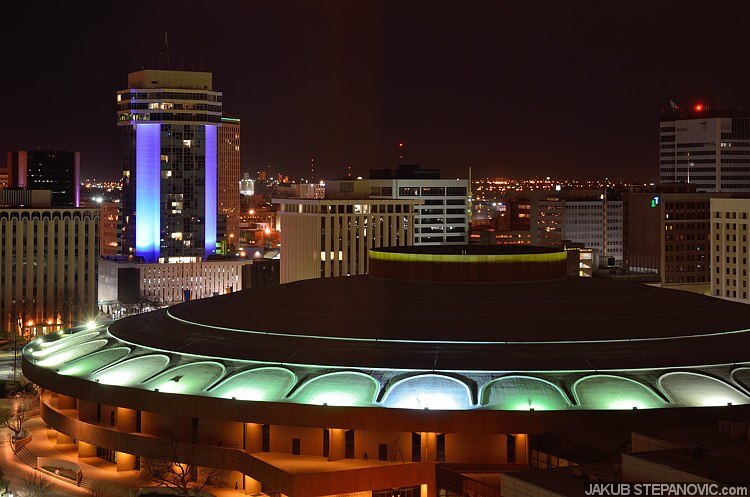
Wichita, Kansas - the middle of the Midwest
Right, let’s rock big time. It was many things at once, but I felt fantastic! I got to meet many hard-working, supportive people representing values I admired. In fact, they were some of the best people I ever met. I got to fight through college classes in my third language, but I managed. Since photography couldn’t pay all my bills yet, I got to learn all sorts of new stuff while working to cover my expenses. We’re talking about how to build fences, put a new roof on a church, and so on.

Giving a hand at an oil rig.
Some minor downsides became invisible, outbalanced by tons of positive aspects. Even more so, I realized a way to connect my picture-taking and active lifestyle to a profession: journalism. I got lucky in a phenomenal program that opened many doors I didn’t even know about. And in the meantime, I got to see bits of the country, too:

From Illinois...
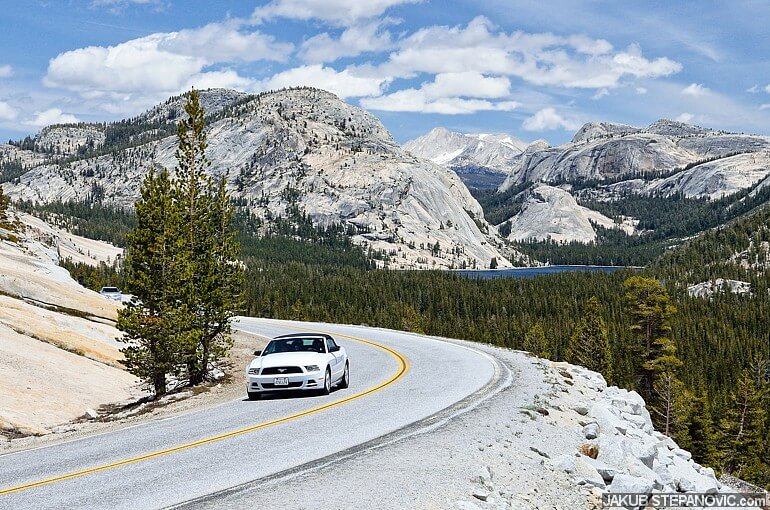
...to California, and in between.
Oh, amazing! I was surrounded by individuals living the way I liked, and I was genuinely happy. As everything worked just as good as it could, when the end of my school (and my visas) approached, I was 100% determined to continue my higher education in the US.
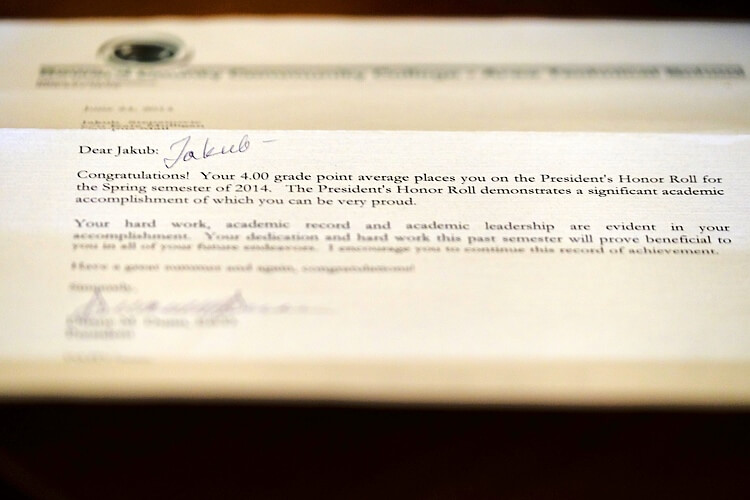
...I even ended my last semester on the honor roll!
I finished my associate degree without going a cent into debt. But I couldn’t just enroll in a four-year university – while I was able to make money to cover my college, the universities are more than twice as expensive as 2-year colleges. Given my international status, gaining funds while studying, both by legal work and by scholarships, is heavily restricted. That being said, I was looking for some other way to earn money for school, and I found that there’s a visa extension that allows me to get a full-time job for a year. Okay, great! So, I filled out another pile of paperwork, paid another fee to the government, and got approved.
Applying for jobs all around the country, I ended up with a few offers and eventually started working in a field that I love: Shooting photos all day, sometimes all night, while meeting a ton of interesting people and visiting cool places. I focused on the job and forgot about the future, as things felt grand.

A celebratory selfie as I started a full-time photography job.
Sadly, the future of my studies started to worry me once I did my math. I found flaws in my plan while researching my options for sustaining a university, as I realized that I would still have to go into debt. Although debt is becoming a normal part of even in-state students’ and many people in general, it was not something I’d want, mainly after realizing that I am some $30,000 short of finishing a degree even at the cheapest universities.

This ad was in one magazine I read recently. I’m sure it’s a great bargain for some, but for me at the moment, $30,000 is astronomical.
Now you may think: “Well, so what? If he can’t afford it, his bad.” Fair, if it would be like that, I wouldn’t say a thing. But it isn’t the case, and that’s the problem – and the point where it gets frustrating.
Different states have different rules, but there is an insane double standard within immigration laws, which dictates that different people end up paying different sums of money for the same service. And what’s crazy is that in many cases, the system advantages those who, for whatever reason, do not cooperate with it: When I attended college, I studied with people without documentation who were admitted for in-state tuition – Meanwhile, I, with all my legit passport with visas, had to pay more than three times more. At the universities, the situation is similar. This absurd system annoyed me, and I knew that it wouldn’t be enough just to fill out another form this time, but I didn’t give up:
As a part of my job, I got to photograph several state representatives, senators, and people with powers in general. And so, I tried talking to some of them about my issue with the implementation of foreign policies in education. One word: hopeless. The reply from the governor of Kansas, Sam Brownback, who told me: “Hmmm, I didn’t know that there is such an issue,” basically speaks for all of them. Nobody was concerned; the vast majority wasn’t even aware of the problem.
I get that – the issue isn’t widely known because there aren’t many people like me. The masses of international students in the US universities as I experienced them are as follows, in descending order:
- Sportspeople: They were brought here by universities that pay most or all of their bills.

- Exchange students and visiting scholars: Short-term visitors who attended a foreign university with an agreement with a US institution, which grants them the same tuition rates as in their hometown, where they need to return to finish their degree.
- People funded by parents or sponsors, who are lucky to be without financial hardship altogether.
- Illegal immigrants, who pay just a portion of the fees compared with those with valid paperwork.
- Guys like me, who came here because they wanted, with a legit passport but not a fat bank account to back them. The smallest group from the list, since you don’t find that many people willing to sacrifice pretty much all spare time and money only to be able to live somewhere they want.
The funny thing is that while at school, I constantly heard from the other mentioned groups (mainly the sportspeople) how is this place/school/country miserable, big time. Something served is easier to appreciate less than something earned.
So it happened that I ditched the plan to continue with education and looked into options of just keeping on working here. In the end, I had a job, a place to live, a community to belong to... Why bother with school when I was all sorted? All except for my legal status.
As it turned out, getting my work visa extended was not any easier. To get the Skilled Workers Visa, my employer would have to file a petition to the government that I am needed for the job and agree to pay me above the average. I know some people in academic or technology jobs who scored this deal, but in journalism, I had no luck. My employer didn’t even pay all my overtime; paying any additional extras for me to stay was not an option – not to mention filling out annoying paperwork to go with it. Other companies I asked told me “Sorry” as well.
There are a few other options. I could marry someone with citizenship and create a family, which would pave the way to a permanent residence permit. Some of my classmates went in that direction, but I didn’t feel like settling yet. Moreover, from the economic aspect, I could not justify getting a baby before having the resources to afford one. In my eyes, that would lead to poverty increase – not a happier life for any of the household members. Why does the system support it? Well, that’d be another essay.
Then, there’s a different working visa to cover a gap in fields with not enough domestic laborers to fill the position. Unfortunately, taking photographs didn’t qualify for that. Wannabe legal immigrants can also enter a lottery by the government, which yearly draws a handful of individuals who will receive a green card. No kidding! And yes, I tried that too.
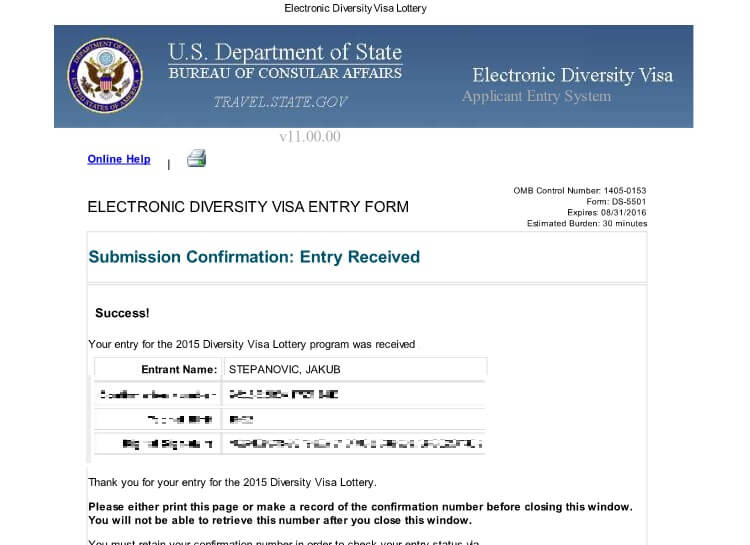
Gambling is not my strength, and this method didn’t bring me luck either.
One can also buy investment visas, but they start at $500,000... Right, nope. That leaves us with the final way to secure a legal stay: obtain some sort of asylum. But in the end, I’m not escaping from some totalitarian tyranny or war-torn country, so that’s a no-go as well.
The legal options for foreigners are so overcomplicated, that even many locals know it. Some Americans I spoke to about my struggles suggested turning to the illegal route.
“I know a guy who can get you a fake driving license for just $500...”
But I didn’t want that. I didn’t want to throw the ethics I admired in a bin. As a bonus, the sanctions for folks who came legally first and then turned illegal are worse than those who arrived illegally in the first place and didn’t get caught. I had to read these facts while applying for the temporary working permit.
To add insult to injury, some officials defend the difficulty of getting visas by telling a narrative about “preserving the American culture.” What does that even mean? I listened to US musicians and watched US movies for a long time before coming to the US. Geography was my favorite class, so as far as the knowledge of the country goes, I think I’d pass okay. What do they want to preserve? Is it the English language? Hey, I speak it. But almost every user manual, contract for insurance or cell phone service, and information in grocery stores and gas stations are already bilingual in English/Spanish. I understand private businesses’ decisions for this, but it is in many schools and some other gov agencies as well. The more one looks into this, the more the whole protective narrative of US immigration suddenly sounds entirely like a big pile of bullshit. Never mind the obvious: Who, besides the native tribes, has the right to shame immigrants in this country anyway?
A few US politicians said that America still wants productive people to come and build a better community and a stronger economy, including the president. However, the current White House administration was perhaps too busy filming funny videos for YouTube, where the president played basketball like “everybody does” or performed with stand-up comedians to make my case any better. Might as well make some use of those taxpayers’ money. What’s next; delivering a speech while riding a unicycle? It clearly works; people love him. In a couple of years, students will learn about US politics as a prime example of how to use the power of public relations.
Yet, from what I experienced, the truth (and I am honestly sad to state that) seems like it is not the productivity, nor the merits of people that matter. It is either their bank statement or willingness to make use of some loopholes. Either or, it requires a lot of luck. Without those, if you play by rules, want to be independent, finish school, run a small business, or work hard as an employee, contribute towards the greater good... Too bad.
A couple of decades ago, the situation might have been different. During the World Wars, the majority of industrialized nations were turned into a pile of smoking dust, whereas the US gained economically with the mainland untouched. With plentiful space and resources, it was the place to go. Suddenly, America took engineers from Germany, imperial politics from the UK, art dominance from Italy, etc. Nowadays, however, as the rest of the world has recovered, there are many more choices. Let me put it in an allegory; take a look at this hall full of fascinating machinery that I stumbled upon while visiting Illinois:

One day, it might have been admired as a productive room fitted with beautiful and efficient pieces of engineering. But now, even if the factory owner would advertise it as the best and most efficient there is, one could still recognize its state and see that it was not what was advertised. Without adaptation and care, the apparatus ended in rust and the workers left elsewhere. Thinking about it, I slowly realized there was another solution; one I completely forgot to consider because I just liked it over here so much: Leave.
Leaving wasn’t an easy decision either, but I got to a point when all the time I spent researching my options and fighting through the bureaucratic junk resulted in my happiness from the place being suddenly on a much, much lower level. The only things that held me sane were my friends and occasional trips to the countryside. It wasn’t the American flag pinned in my living room anymore. The “How could I conquer the beast?” question got replaced with “Why should I?”. The more I learned, and the more pros and cons I counted, the more I realized that there was no room in the US for me.
Ask yourself: Would you pay tens of thousands of USD just to be allowed to be in your dream country (not including the actual living expenses)? Would your dream country be a place where you see others getting the same service for less work than what you do, even if they speak badly about it? Would your dream country address you as an alien, even if you pay taxes to it?
I felt like I should leave.
Nevertheless, don’t get the impression that I am leaving with a bad attitude. My overall experience was stellar, and I don’t regret the effort it cost, not for a second. I am grateful for the opportunity to meet some amazing people, and I will miss them. I had a great time while earning my degree and photographing a variety of assignments. I also enjoyed visiting some of the magnificent places the nation has. Currently, I just have to move on.
I believe I will come back someday. I hope. Either as a tourist or something else. It may take some time, though. I don’t know where I’ll end up, but it will be somewhere where I can be productive and where they let me do so.
I might an article summing the pros and cons I’ve experienced while living in the US at some point later. The coin always has more than just one side. Thanks for reading!
Update 7/2020: I kept following the issue, and ended up writing an outline of what are the options to secure a stay in the US for foreigners. If you are interested, see it here. Alternatively, you can browse my Blog Archives for more articles.
Blaq
August 7, 2015 at 21:54
Wow! What an amazing experience you’ve conquered with your exploration it the United States. I’m really impressed with this write up, and I hope you find satisfaction wherever the journey tales you. Good luck with life mate.
Comments are closed.